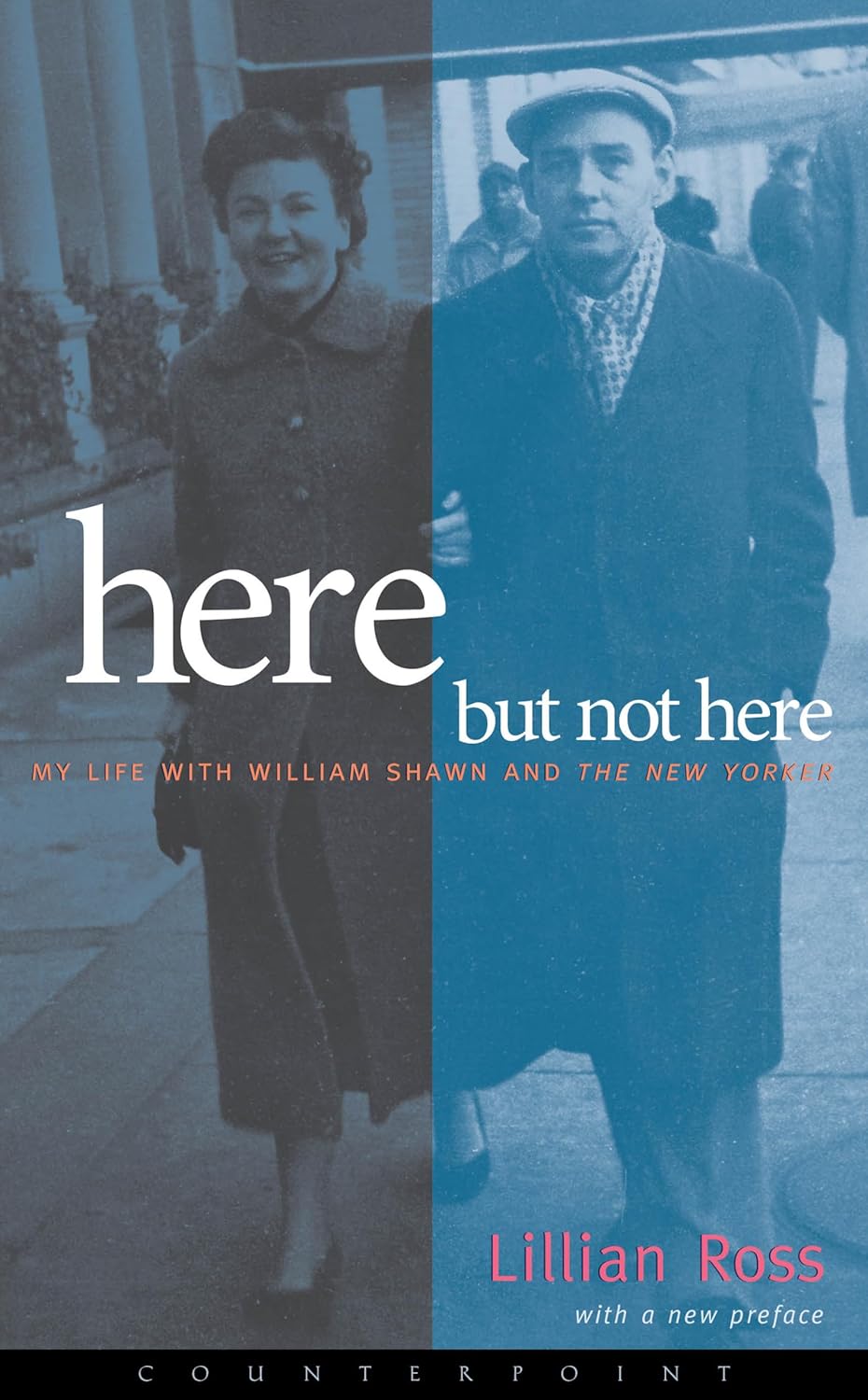In the100th anniversary issue of The New Yorker, Adam Gopnik relates that Ernest Hemingway was not unhinged by Lillian Ross’s unflattering portrait. Ross was no less harsh on her boss and lover William Shawn in her memoir, here but not here. But what about another famous portrait, that of the pseudonymous psychoanalyst in Janet Malcolm's The Impossible Profession? Gopnik remarks that "if Hemingway never took offense at Ross rendering, the analyst faithfully Freudian could never forgive Malcolm for hers." Objectivity is a ruse. You're often predisposed in one direction or another. History facilitates the comforting familiarity created by projection. So-called love really has little to do with the other in the presence of mutual longing. In fact desire is a hallucinogen called romanticism whose aura facilitates the consummation of the sexual act. Forget about the journalistic profile, the question is, what's one seeing in the hall of mirrors that psychoanalysis terms "transference? Jill Lepore's piece, "War of Words," about how The New Yorker's "writers and editors see one another" describes yet another form of human love.
read "Pet Buddha" by Francis Levy, Vol. 1 Brooklyn
listen to James Brown and Luciano Pavarotti singing "It's a Man's World"
and listen to "I Love to Love (But My Baby Just Wants to Dance)" by Tina Charles (1975)
and listen to "Band of Gold" by Freda Payne with Belinda Carlisle
and listen to "Twenty-Five Miles From Home" by Edwin Starr





No comments:
Post a Comment
Note: Only a member of this blog may post a comment.